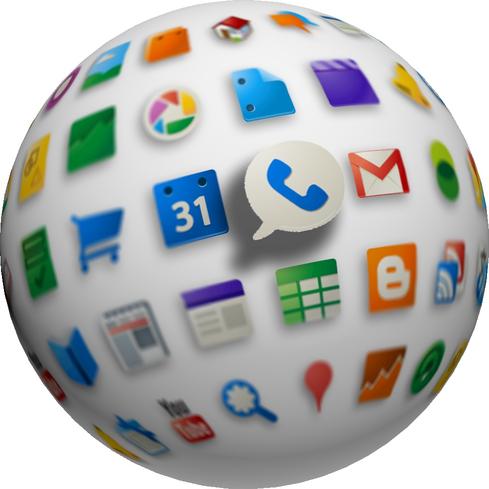Google Launches Chromebox For Meetings
Using Google+ Hangouts, enterprises can now enjoy video conferencing at an affordable price.


10 Great Google Apps Tips
10 Great Google Apps Tips (Click image for larger view and slideshow.)
Hoping to simplify the process of setting up and running video conferences, Google on Thursday announced Chromebox for meetings, an updated version of its Chrome OS computer that has been tuned for video streams, backed by peripherals, Google+ Hangouts, and other Google cloud services.
At a media event at Google's Mountain View, Calif., headquarters, Caesar Sengupta, VP of product management for Chromebooks at Google, touted the system's affordability and potential to foster a more engaged corporate culture.
Citing the difficulty of setting up audio and video conferences and the fact that those attending audio conferences often spend the time playing games or surfing the web, Sengupta said Google believes it can offer something better.
"Many companies try to deal with [the challenge of audio conferencing] by investing in video conferencing systems," he said. "But these are typically expensive, complicated to set up, and require changes in the room. ... Very few people in a company actually get access to these systems."
Chromebox for meetings is available from ASUS in the US today for $999, with Dell and HP offerings coming soon. It will be available in other countries in the months ahead. That cost includes an Intel i7-based Chromebox, a video camera, microphone, speaker, and remote, as well as a year's worth of service and support. Thereafter, the ongoing price is $250 a year. Displays are not included.
"Companies that have not been able to afford the luxury of a face-to-face meeting system can now do so," said Sengupta. "We think there's a big market for this," he added, declining to cite sales projections as a matter of policy.
A company called Vidyo has been working with Google to provide Google+ Hangouts connectivity with H.323/SIP and IP PBX systems from the likes of Cisco, Tandberg, and Polycom. Those who wish to join corporate Google+ Hangouts meetings from their phones can do so through a service called Uberconference.
Sengupta said a number of companies have been beta testing the service and have been pleased with the results. These include: Brady, Costco, CBC, Eventbrite, Lytro, oDesk, Gilt, Premier Foods, Softbank, Woolworths, the State of Wyoming, and Yelp.
A meeting room with a Chromebox can accommodate up to 15 people and Google says multiple rooms can be linked with each other for large group meetings. All this is handled through a central administrative console as part of the paid service.
It's been a busy time in the Chrome OS world. Two new Chromebook models debuted this week. Toshiba released its Chromebook, referred to by the alphanumeric jumble "CB30-A3120," for $299. It features an Intel Celeron 2955U, 2GB DDR3L 1600MHz (max 2 GB), Intel Integrated Graphics, 16-GB SSD with 100-GB Google Drive included (at no cost for two years), 802.11a/g/n, and a 13.3 inch screen.
Weighing in at 3.3 pounds, it comes with a memory card reader, 2 USB 3.0 ports, an HDMI port, and a battery that's not user replaceable but promises up to nine hours of usage.
Acer meanwhile released a Chromebook with an equally obtuse designation: the C720P-2666 Chromebook, which also lists for $299. It's hardware specifications are very similar, except as follows: one of its two USB ports is USB 2.0 rather than 3.0; it comes with a 32-GB SSD instead of 16 GB; and its battery life is projected to be 7.5 hours as opposed to 9 hours.
What distinguishes Acer's latest Chromebook, however is that, like Google's high-end Chromebook Pixel, it comes with a touchscreen.
Approximately, 2.5 million Chromebooks were sold in 2013, according to research firm IDC, a figure that represents about 1% of the global PC market. The education sector, however, has been quicker to see value in Chrome OS devices. Futuresource Consulting has estimated that Chromebooks accounted for about 19% of the K-12 US mobile market last year.
The growing appeal of Chromebooks is seen as a threat by Microsoft, despite the fact that the devices can work with Office files through Google Apps or via remote access extensions. Microsoft recently extended its anti-Google "Scroogled" marketing campaign to include Google's Chromebook, which it insists are not "a real laptop" because the device doesn't run Office or Windows.
Of course school administrators are looking at options like Chrome OS and Apple's iOS precisely because they don't come with the management costs associated with Windows.
Google's Chromebook hardware partners now include Acer, Asus, Dell, HP, Lenovo, LG, Samsung, and Toshiba. And Sony’s Vaio VCC11's is expected to ship this spring.
Too many companies treat digital and mobile strategies as pet projects. Here are four ideas to shake up your company. Also in the Digital Disruption issue of InformationWeek: Six enduring truths about selecting enterprise software. (Free registration required.)
About the Author
You May Also Like






